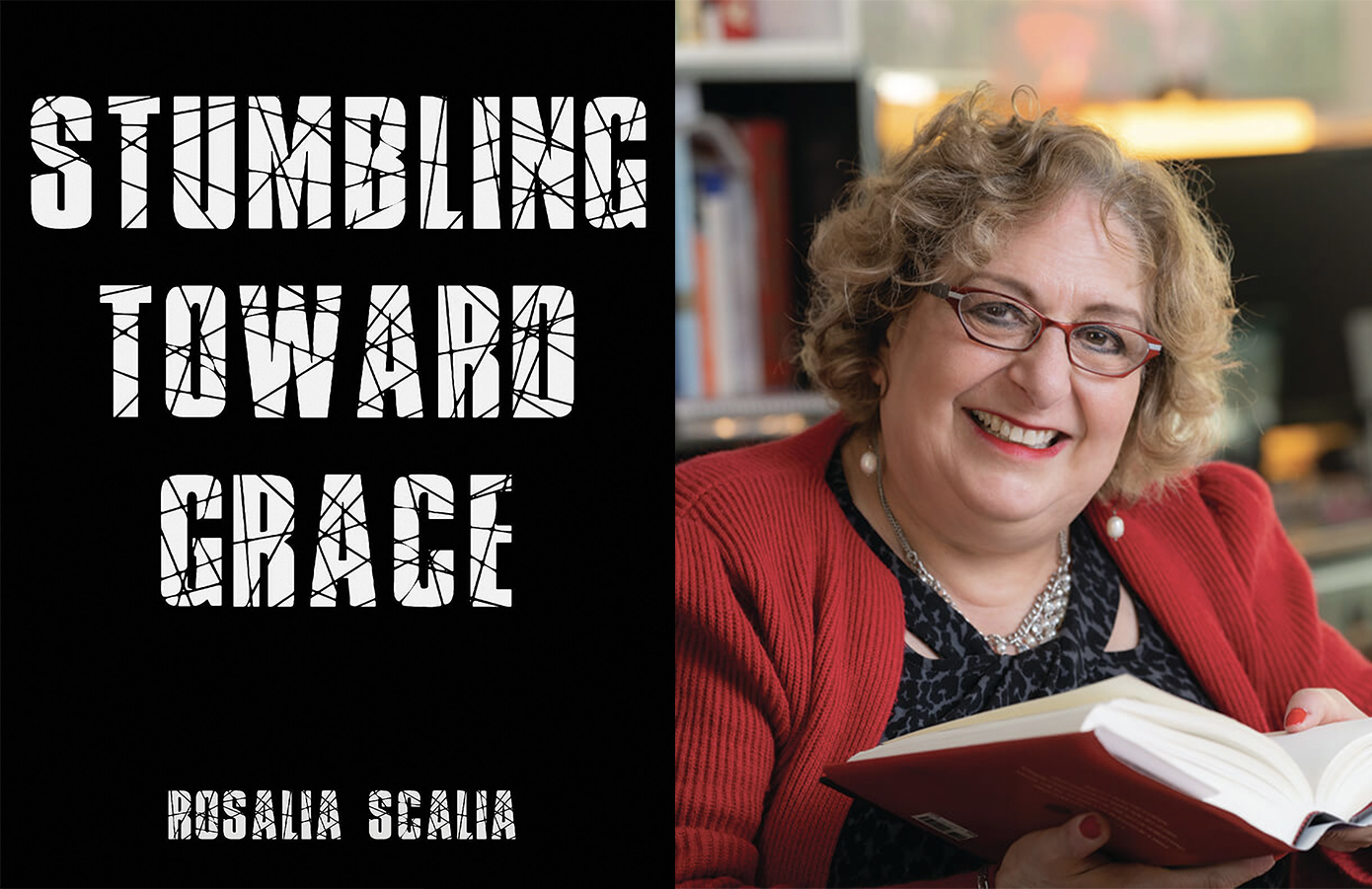Arts & Culture
Rosalia Scalia’s Stories Focus on Ordinary Characters and Their Imperfect Relationships
Little Italy native discusses her debut collection, 'Stumbling Toward Grace,' released on Nov. 9.

Baltimore fiction readers may not know Rosalia Scalia’s name, but they should. An award-winning local short story writer, the Little Italy native’s work has appeared in numerous literary magazines over the years, including the North Atlantic Review, Notre Dame Review, The Portland Review, and closer to home, The Loch Raven Review.
Her story “Sister Rafaele Heals the Sick,” which is included in her debut collection, Stumbling Toward Grace, was first published by Pebble Lake Review and nominated for a Pushcart Prize, and appeared again in City Sages: Baltimore (CityLit Press), an anthology of stories by 32 Baltimore writers, including Anne Tyler and Alice McDermott.
The stories here are largely set several decades ago in Baltimore’s pre-gentrified, working-class Harbor neighborhoods. However, the ordinary characters and their imperfect relationships—everyone trying to find stability, safety, and peace in life’s daily tumult—are timeless. Many of Scalia’s characters (like all of us) are their own worst enemies, stumbling, but also occasionally succeeding in their desire, or even need, to form bonds with family and loved ones despite their brokenness and flaws.
Many of these stories are set in the 1970s and 1980s. It’s an interesting and overlooked period of transition for Baltimore.
Yes. Parts of the city began to look as if they were wearing a glitzy ball gown—such as the then-new Inner Harbor and areas touched by the downtown renaissance—but away from those areas, nothing much has changed. My interest lay in the other part of the city where ordinary people sometimes lived ordinary lives…my dad was a Sicilian-born ship navigator who in America worked as a bricklayer; my mother, a stay-at-home mom who returned to work when my youngest sibling entered high school. They and folks around them worked hard to create better futures for their children, but sometimes circumstances beyond their control thwarted their goals, hopes, and dreams.
In the first story, “Stumbling Toward Grace,” we see an older white man from one of Baltimore’s immigrant neighborhoods, finally, perhaps, coming to some acceptance of his daughter’s marriage to a Black man and his biracial grandchildren, and now great-grandchildren. Is this a story based on anything you’ve witnessed? No. I knew bigoted people like Adolph, but not this particular situation. Fiction writers always ask, “What if?” The germ of this story came from a lecture at the UM School of Medicine on the changing faces of HIV/AIDS, when the lecturer said that the fastest growing number of new HIV/AIDS cases was among the elderly because the disease had not been on their radars when they were teens. I started with the character Adolph, a name also out of fashion since WWII, and the story grew from there.
“Sister Rafaele Heals the Sick” is funny, human, profane—religious and anti-religious at once—and revealing about societal norms. It’s not new to point out the hypocrisy of people’s Sunday church behavior versus how they live the other six days of the week, but somehow you don’t see it coming in this story. What was the inspiration for this piece?
I knew a woman who decided that her path to God translated into being homeless, sitting on benches waiting for her “boss” to tell her where to go. The space between being divinely inspired and holy or mentally ill fascinates me. What is saintly? What is mental illness? St. Francis of Assisi’s father considered him mad, an embarrassment, and dragged his son home to beat him. Yet, he is now revered as a saint because love drove his higher purpose. Sister Rafaele is no saint. Despite the inspiration, the story is fiction.
There is the adage “write about what you know.” Where did you learn about the early-Sunday-morning Italian/Little Italy neighborhood tradition of picking cicoria before Mass and dinner?
Every Italian-American knows about this tradition! Although my family did not pick cicoria, we knew others who did. The clash of cultures has long piqued my interest, especially growing up walking the line between two cultures.